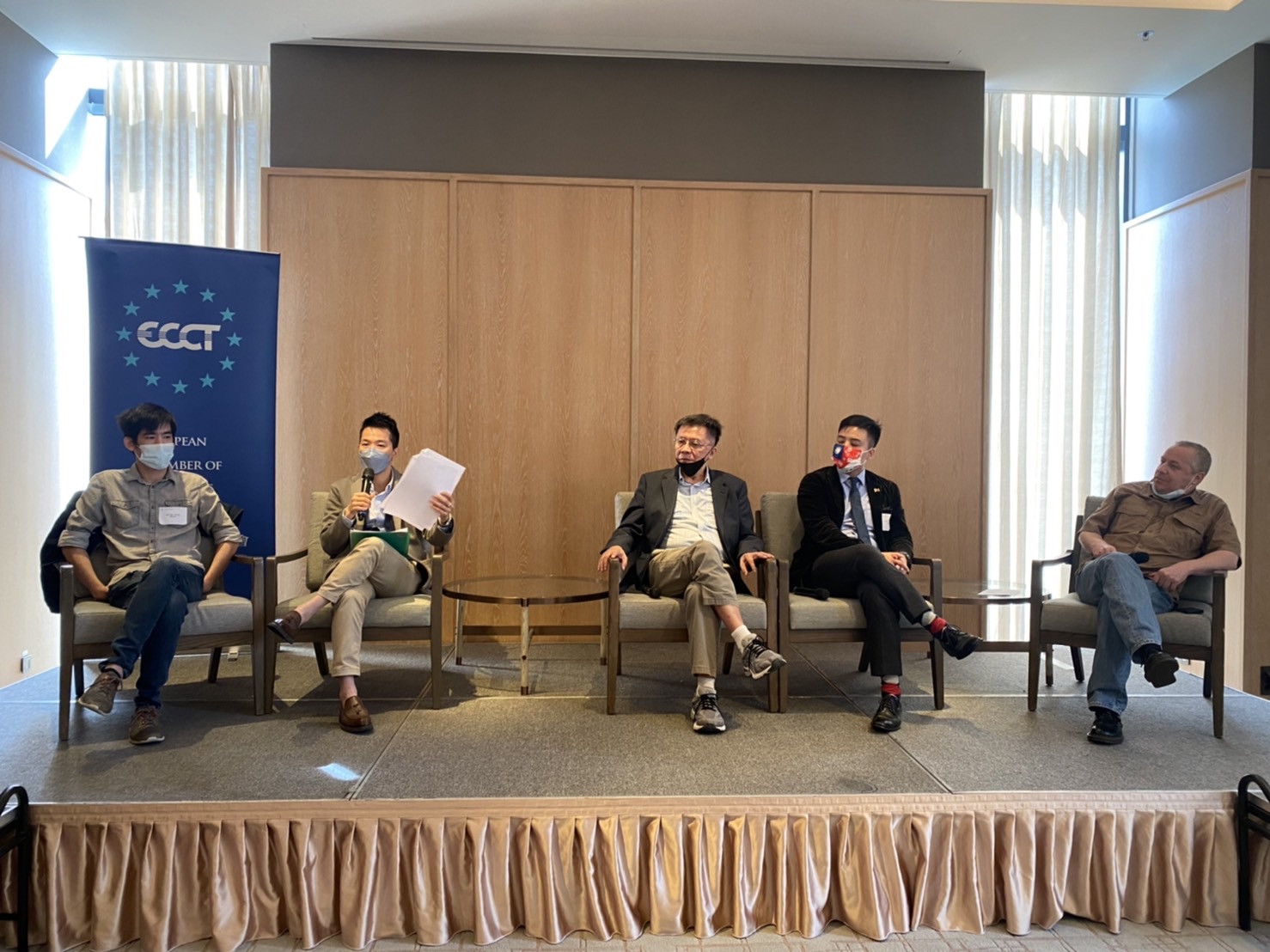November election preview

The ECCT, together with ICRT hosted a roundtable discussion on Taiwan's forthcoming 26 November mayoral and city council election races. The discussion was moderated by Gavin Phipps from ICRT and featured guest panellists Brian Hioe (邱琦欣), freelance journalist and translator; Dr Shen Fu-hsiung (沈富雄), former Taiwan legislator and economic and political commentator; Mark Ho (何志偉), Legislator for the Shilin Datong District in Taipei; Alfred Lin (林家興), Deputy Director of the Culture and Communication Committee of the Kuomintang (KMT). Panellists discussed and analysed the various races, the candidates, and their election prospects.
Taiwan's municipal elections for city mayors, councillors and village chiefs will take place on 26 November. The opposition Kuomintang has traditionally done well in local elections and even did so in the last municipal elections in 2018, despite losing the national level presidential and legislative elections to the Democratic Progressive Party (DPP) just two years earlier (in 2016). This time around, both parties have the advantage of incumbency in certain races (KMT candidates are running for re-election in New Taipei and Taichung while the DPP's incumbents are running for re-election in Tainan and Kaohsiung).
The DPP will be seeking to hold onto traditional pan-blue areas that it was able to capture in previous elections - Taoyuan and Keelung have traditionally gone to the KMT but were held by DPP mayors Cheng Wen-tsan and Lin Yu-chang for the past eight years. For its part, the KMT has had hopes to make inroads into southern Taiwan ever since the unexpected election victory of Han Kuo-yu in Kaohsiung 2018, with Han later becoming the KMT's presidential candidate in the 2020 elections. Meanwhile, in Taipei, there is a three-way race between the KMT's Chiang Wan-an, the DPP's Chen Shih-chung (former minister of the Ministry of Health and Welfare) and independent candidate Huang Shan-shan, who is being backed by the Taiwan People's Party (TPP), founded by incumbent Taipei Mayor Ko Wen-je.
Dr Shen Fu-hsiung predicted that the KMT will win 16-17 mayoral races, the DPP 4-6, while the TPP may possibly win one race. He predicted that the KMT will win in Taipei City, New Taipei, Taoyuan and Taichung. He said that the DPP has also been hurt by missteps, especially in first selecting and then replacing its original candidate for Taoyuan, Hsinchu mayor Lin Chih-chien, after he became embroiled in a plagiarism scandal. Meanwhile he said the DPP's candidate in Taipei had not run a convincing campaign. The TPP has a chance to win in Hsinchu, which would give the TPP a single city. According to Shen, this is because the DPP's attack strategy on the TPP's candidate in that city has backfired.
Mark Ho said that the DPP's Chen Shih-chung still has a good chance in Taipei because the KMT's Chiang lacks charisma while the traditional pan blue vote will be split this time between Chiang and Huang Shan-shan, which would give an edge to the DPP. On the other hand, some voters view the election in Taipei as a referendum of the government's handling of the coronavirus pandemic and will only vote for Chen if they believe he did a good job as health minister.
Panellists acknowledged that opinion polls are unreliable and that the parties use their own polls as part of their campaign strategies to attack their opponents.
Panellists discussed whether or not cross-Strait issues, particularly China's ongoing grey zone intimidation tactics, will weigh on voters' minds in this election but there was no consensus as to how much of a factor it will be. While cross-Strait issues are front and centre in national elections, it is not certain how much it will factor in these elections at the local level. As for Chinese interference, while there is expected to be ongoing online disinformation campaigns by China or its proxies, Shen Fu-hsiung said that China had learnt a lesson before when its attempts to help [KMT candidates] backfired. Moreover, he said that Taiwanese were not impressed with the “show” put on by the Chinese Communist Party at its recent 20th National Congress and that the KMT is afraid to tell the CCP the truth that more than 80% of Taiwanese are not interested in reunification. Brian Hioe expressed the view that the KMT continues to struggle to provide a vote-winning position on cross-Strait relations.
